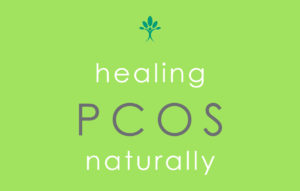Though many of us regularly make New Year’s resolutions (approximately 40%, in fact), it was found in a survey of over 1,000 people that only approximately 9% of us are successful in keeping and achieving those resolutions. So what seems to be the key for those who succeed? I believe the key to success is to approach each goal as a lifestyle change so that it becomes a permanent part of your routine, not just a temporary challenge, soon to be brushed aside and forgotten. Listed below are 5 tips to help you live a happier and healthier 2017.
1. Eat mindfully. An article by Harvard Health proposes that “a slower, more thoughtful way of eating could help with weight problems and maybe steer some people away from processed food and other less-healthful choices.” The best way to accomplish this is to remove all distractions (phones, tv, tablets, etc) and focus on your plate. How does the food look, smell, taste? What about texture? Focus on chewing properly, putting your fork down between bites and savoring your meal, and you will be less likely to overeat and feel more satisfied.
2. Get more sleep. Chronic sleep deprivation leads to imbalanced hormones, especially cortisol. Also known as the stress “hormone,” cortisol controls our appetite, as well as our desire to consume high calorie foods. By getting adequate sleep (7-9 hours per night), you can reset both your cortisol levels and your cravings.
3. Find an activity that you love and do it often. The key to success for any exercise regimen is to find something you love to do and do it often. Aim to try a new activity every week until you find one that you like best. Try non-conventional exercise methods such as bowling, dancing, kick-boxing, gardening, jumping rope or hula hoop. Try a new exercise class or a one on one session with a trainer. The goal is to move 30-60 minutes at least 3-5 days per week.
4. Drink enough water. Every major function in our body requires water, including temperature regulation, digestion, vitamin and mineral absorption and assimilation, waste and toxin removal, and protection of joints and organs. To determine how much you should drink daily, divide your body weight in half and aim to consume that many ounces of water or liquids (not including coffee) per day. Some ways to increase water intake are:
-Drink iced herbal teas, and add frozen blueberries and fresh mint
-Try a naturally sweetened low-calorie water enhancer, such Sweet Leaf water drops, which are sweetened with stevia
-Try fruit-infused water. Popular choices include strawberries, lemons, cucumbers and oranges
-Make homemade lemonade with filtered water, fresh squeezed lemon juice, and stevia or monk fruit extract
-Carry a water bottle with you at all times so that it’s always accessible
5. Cut back on sugar and eliminate artificial sweeteners. Research shows that both artificial sweeteners and sugar are inked to chronic diseases such as heart disease, diabetes and even cancer. Avoid these words when reading labels: sucralose (Splenda®), aspartame (Equal®, Nutrasweet®), saccharin (Sweet and Low®), and acesulfame potassium (Sunett®, Sweet One®). Also avoid corn syrup and high fructose corn syrup, and don’t consume more than 10 grams of added sugar in any prepackaged item.
Becky Cortez is a Registered and Licensed Dietitian Nutritionist working as a consultant dietitian in southeast Louisiana with over 2,500 hours of clinical experience. She graduated from Nicholls State University with a Bachelor of Science in Dietetics, and completed an internship through North Oaks Hospital in Hammond, Louisiana. Becky has studied nutrition for over 10 years and specializes in weight loss, detoxification, food allergies, Candida and gut restoration plans, and meal planning.



Comments are closed.